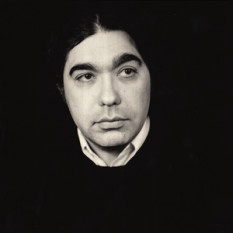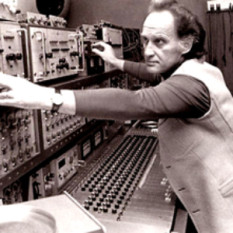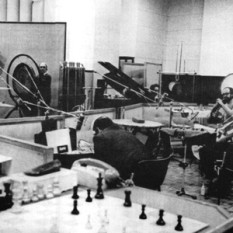When it comes to creative genius, Roland Kayn, born in Reutlingen (Germany) in 1933, might be the most unjustly neglected figure in contemporary music. From 1952 to 1955 he studied organ and composition at Stuttgart's Staatliche Hochschule fur Musik, as well as scientific theory at the Technische Hochschule, undertaking further composition and analysis studies in Berlin with Boris Blacher and Josef Rufer from 1956 to 1958.
In that year he won the Best Foreign Work prize at the Kairazuwa Festival in Tokyo, and further awards followed in Italy in 1962 and 1964 for his orchestral compositions Vectors I and Schwingungen. Kayn's discovery of electroacoustic sound synthesis occurred in 1953 at the mythic Westdeutscher Rundfunk Studios in Cologne, and by 1959 he'd had firsthand experience of studio work in Warsaw, Munich, Milan, Brussels and Utrecht. He freelanced in various radio stations from 1959 to 1963, when he was nominated director of New Music at Hamburg's Norddeutscher Rundfunk.
In 1964 he was one of the co-founders, with Aldo Clementi and Franco Evangelisti, of the Gruppo Internazionale Nuova Consonanza, one of the first European ensembles mixing improvisation and live electronics, and in 1967 organised a simultaneous concert of works by 13 composers that included electronic, concrete, electro-instrumental, computer and cybernetic music, an event that reached its definitive form in Hamburg in 1970.
In Bonn in 1975 he staged an ambitious project in which performance, music, and computer workshops took place several locations at the same time, and the following year promoted a series of simultaneous non-stop shows in Amsterdam's Van Gogh Museum based on the theme "From Carillon to Computer", during the course of which debates, seminars and computer-assisted electroacoustic music performances were held.
Since 1970 Kayn has been based in the Netherlands, playing an active role of the cultural department of Amsterdam's Goethe Institute, developing artistic initiatives and important concerts of contemporary music. From his student days onwards, Roland Kayn was always more influenced by data processing theory than by the work of fellow composers (no surprise then that the shock generated by his composition Aggregate in 1959 led to his being declared persona non grata by the so-called avant-garde establishment), and began using the term "cybernetics" to define his own music, in which complex networks of electronic devices follow the composer's instructions in the form of a system of signals and commands. Words such as "harmony", "melody" and "rhythm" no longer apply; the idea that a musical work should be defined in minute detail by its composer is anathema to Kayn, who insists that cybernetic music should be self-regulating, leaving behind both the narrative element and the psycho/emotional minutiae usually associated with the notions of "composer" and "art". Even the person behind the system cannot predict the final outcome, since the processes have no real epicentre, and each sound is of equal weight and importance in relation to the others. "Music is sound, and sound is self-sufficient," Kayn declares emphatically.
Massimo Ricci .
Tous les albums
Vous pouvez trouver des informations via le meilleur moteur de recherche de musique - Muzlan.top 😊Tous les documents sur demande "Roland Kayn" sont disponibles à la page Roland Kayn
Oui bien sûr. Vous pouvez écouter des morceaux sur la page Roland Kayn
Oui bien sûr. Vous pouvez télécharger des morceaux sur la page Roland Kayn
Cette page est trouvée par requêtes: Roland Kayn track minus, Roland Kayn remix, Roland Kayn song download, Roland Kayn flac, Roland Kayn song listen




